Colorectal Cancer ( Colon Cancer ) Treatment Cost in South Korea from top hospitals starts from KRW 40280700 (USD 30000)approx
.| Country | Cost | Local_currency |
|---|---|---|
| Greece | USD 35000 | Greece 32200 |
| India | USD 6460 | India 537149 |
| Israel | USD 22000 | Israel 83600 |
| Lebanon | USD 30000 | Lebanon 450166500 |
| Malaysia | USD 20000 | Malaysia 94200 |
| South Korea | USD 30000 | South Korea 40280700 |
| Spain | USD 28000 | Spain 25760 |
| Switzerland | USD 30000 | Switzerland 25800 |
| Thailand | USD 20310 | Thailand 724052 |
| Tunisia | USD 30000 | Tunisia 93300 |
| Turkey | USD 8040 | Turkey 242326 |
| United Arab Emirates | USD 19110 | United Arab Emirates 70134 |
| United Kingdom | USD 17000 | United Kingdom 13430 |
Treatment cost
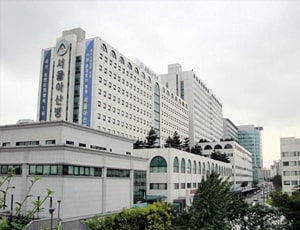
Asan Medical Centre located in Seoul, South Korea is accredited by ISO. Also listed below are some of the most prominent infrastructural details:

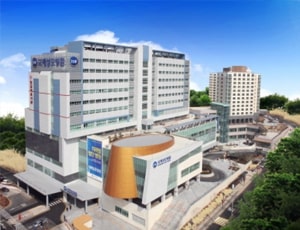
International St. Mary's Hospital located in Seoul, South Korea is accredited by JCI. Also listed below are some of the most prominent infrastructural details:
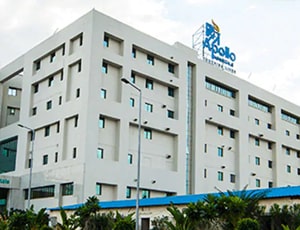
Types of Colorectal Cancer ( Colon Cancer ) Treatment in Apollo Hospital and its associated cost
| Treatment Option | Approximate Cost Range (USD) | Approximate Cost Range (INR) |
|---|---|---|
| Colorectal Cancer Treatment (Overall) | 8905 - 16529 | 732077 - 1384596 |
| Surgery | 4970 - 8806 | 412276 - 751363 |
| Chemotherapy | 915 - 2285 | 73471 - 180845 |
| Radiation Therapy | 1106 - 2838 | 92723 - 228014 |
| Targeted Therapy | 1707 - 3429 | 141057 - 271331 |
| Immunotherapy | 2211 - 4544 | 186119 - 368993 |
| Hormone Therapy | 1149 - 2822 | 93883 - 228799 |
| Colostomy | 1685 - 3982 | 140200 - 318902 |
| Ileostomy | 2300 - 4487 | 183119 - 375730 |
| Proctectomy | 2770 - 5555 | 232544 - 456239 |
| Lymph Node Removal | 910 - 2222 | 74301 - 183332 |
| Laparoscopic Surgery | 2283 - 5003 | 186433 - 417551 |
| Robotic Surgery | 2775 - 6056 | 227412 - 506681 |
| Minimally Invasive Surgery | 2797 - 6195 | 231846 - 512877 |
DOCTORS IN 13 SPECIALITIES
FACILITIES & AMENITIES
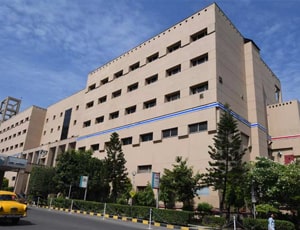
Types of Colorectal Cancer ( Colon Cancer ) Treatment in Apollo Multispecialty Hospitals and its associated cost
| Treatment Option | Approximate Cost Range (USD) | Approximate Cost Range (INR) |
|---|---|---|
| Colorectal Cancer Treatment (Overall) | 8874 - 17024 | 748129 - 1356529 |
| Surgery | 5004 - 8814 | 421454 - 748761 |
| Chemotherapy | 920 - 2242 | 74514 - 188409 |
| Radiation Therapy | 1125 - 2822 | 93337 - 229754 |
| Targeted Therapy | 1657 - 3411 | 139597 - 275688 |
| Immunotherapy | 2246 - 4592 | 188534 - 375033 |
| Hormone Therapy | 1101 - 2853 | 90520 - 226634 |
| Colostomy | 1709 - 3879 | 136044 - 325241 |
| Ileostomy | 2297 - 4500 | 186726 - 371411 |
| Proctectomy | 2766 - 5537 | 232714 - 457185 |
| Lymph Node Removal | 893 - 2234 | 73379 - 186680 |
| Laparoscopic Surgery | 2278 - 5045 | 183529 - 419825 |
| Robotic Surgery | 2751 - 6088 | 235405 - 498587 |
| Minimally Invasive Surgery | 2759 - 6156 | 227422 - 505262 |
DOCTORS IN 13 SPECIALITIES
FACILITIES & AMENITIES

Types of Colorectal Cancer ( Colon Cancer ) Treatment in Memorial Atasehir Hospital and its associated cost
| Treatment Option | Approximate Cost Range (USD) | Approximate Cost Range (TRY) |
|---|---|---|
| Colorectal Cancer Treatment (Overall) | 3301 - 13330 | 102200 - 398954 |
| Surgery | 2827 - 7719 | 85823 - 240033 |
| Chemotherapy | 907 - 2767 | 27459 - 84151 |
| Radiation Therapy | 1121 - 3367 | 34117 - 101919 |
| Targeted Therapy | 1710 - 3897 | 51668 - 120262 |
| Immunotherapy | 2222 - 4456 | 67153 - 138200 |
| Hormone Therapy | 1111 - 3434 | 34176 - 101501 |
| Colostomy | 1718 - 4543 | 50665 - 134457 |
| Ileostomy | 2204 - 5051 | 66491 - 150642 |
| Proctectomy | 2758 - 6682 | 85414 - 205389 |
| Lymph Node Removal | 881 - 2763 | 26615 - 82997 |
| Laparoscopic Surgery | 2780 - 6895 | 85327 - 200085 |
| Robotic Surgery | 3325 - 8012 | 103787 - 241734 |
| Minimally Invasive Surgery | 2756 - 6859 | 83393 - 205629 |
DOCTORS IN 13 SPECIALITIES
FACILITIES & AMENITIES
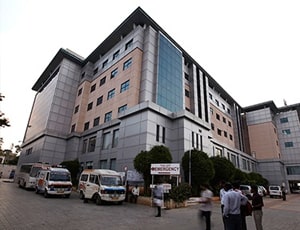
Types of Colorectal Cancer ( Colon Cancer ) Treatment in BGS Gleneagles Global Hospitals and its associated cost
| Treatment Option | Approximate Cost Range (USD) | Approximate Cost Range (INR) |
|---|---|---|
| Colorectal Cancer Treatment (Overall) | 9171 - 17033 | 748476 - 1362000 |
| Surgery | 5059 - 9127 | 411322 - 737425 |
| Chemotherapy | 890 - 2230 | 75260 - 184113 |
| Radiation Therapy | 1123 - 2769 | 93229 - 234501 |
| Targeted Therapy | 1695 - 3412 | 136419 - 278296 |
| Immunotherapy | 2261 - 4583 | 183826 - 362120 |
| Hormone Therapy | 1116 - 2753 | 92348 - 228357 |
| Colostomy | 1716 - 3947 | 136790 - 317661 |
| Ileostomy | 2244 - 4550 | 188064 - 366498 |
| Proctectomy | 2785 - 5700 | 234324 - 470443 |
| Lymph Node Removal | 891 - 2223 | 73642 - 182917 |
| Laparoscopic Surgery | 2239 - 5005 | 184414 - 409719 |
| Robotic Surgery | 2811 - 6115 | 232968 - 509934 |
| Minimally Invasive Surgery | 2812 - 6246 | 235511 - 512042 |
DOCTORS IN 14 SPECIALITIES
FACILITIES & AMENITIES
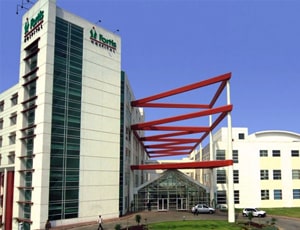
Types of Colorectal Cancer ( Colon Cancer ) Treatment in Fortis Hospital and its associated cost
| Treatment Option | Approximate Cost Range (USD) | Approximate Cost Range (INR) |
|---|---|---|
| Colorectal Cancer Treatment (Overall) | 8144 - 15259 | 667419 - 1247980 |
| Surgery | 4558 - 8151 | 374946 - 665706 |
| Chemotherapy | 814 - 2036 | 66672 - 165954 |
| Radiation Therapy | 1018 - 2527 | 82937 - 207097 |
| Targeted Therapy | 1521 - 3050 | 125282 - 249863 |
| Immunotherapy | 2026 - 4052 | 167162 - 333773 |
| Hormone Therapy | 1017 - 2538 | 83053 - 208719 |
| Colostomy | 1528 - 3552 | 124509 - 291004 |
| Ileostomy | 2030 - 4045 | 165951 - 331962 |
| Proctectomy | 2539 - 5084 | 209009 - 416084 |
| Lymph Node Removal | 811 - 2022 | 66876 - 165901 |
| Laparoscopic Surgery | 2038 - 4555 | 167104 - 374741 |
| Robotic Surgery | 2541 - 5558 | 207458 - 455885 |
| Minimally Invasive Surgery | 2534 - 5604 | 209046 - 459552 |
DOCTORS IN 12 SPECIALITIES
FACILITIES & AMENITIES
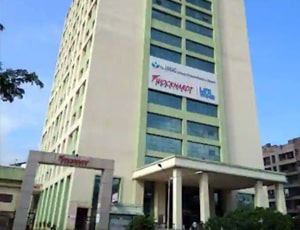
Types of Colorectal Cancer ( Colon Cancer ) Treatment in Wockhardt Hospital, Umrao and its associated cost
| Treatment Option | Approximate Cost Range (USD) | Approximate Cost Range (INR) |
|---|---|---|
| Colorectal Cancer Treatment (Overall) | 8116 - 15187 | 664798 - 1247580 |
| Surgery | 4563 - 8159 | 373469 - 665882 |
| Chemotherapy | 809 - 2025 | 66625 - 166595 |
| Radiation Therapy | 1018 - 2541 | 82926 - 208454 |
| Targeted Therapy | 1525 - 3049 | 125256 - 250330 |
| Immunotherapy | 2028 - 4044 | 165870 - 331505 |
| Hormone Therapy | 1014 - 2533 | 82836 - 207120 |
| Colostomy | 1529 - 3561 | 125376 - 291649 |
| Ileostomy | 2029 - 4048 | 166952 - 332229 |
| Proctectomy | 2542 - 5091 | 207320 - 414444 |
| Lymph Node Removal | 814 - 2022 | 66453 - 167022 |
| Laparoscopic Surgery | 2030 - 4552 | 165809 - 373526 |
| Robotic Surgery | 2539 - 5564 | 207801 - 457522 |
| Minimally Invasive Surgery | 2542 - 5593 | 207367 - 458151 |
DOCTORS IN 13 SPECIALITIES
FACILITIES & AMENITIES
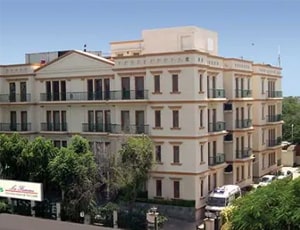
Types of Colorectal Cancer ( Colon Cancer ) Treatment in Fortis La Femme, Greater Kailash II and its associated cost
| Treatment Option | Approximate Cost Range (USD) | Approximate Cost Range (INR) |
|---|---|---|
| Colorectal Cancer Treatment (Overall) | 8099 - 15269 | 663882 - 1243419 |
| Surgery | 4553 - 8114 | 374632 - 663564 |
| Chemotherapy | 815 - 2029 | 66830 - 167278 |
| Radiation Therapy | 1020 - 2526 | 83168 - 208206 |
| Targeted Therapy | 1524 - 3059 | 124904 - 250888 |
| Immunotherapy | 2028 - 4057 | 165819 - 332514 |
| Hormone Therapy | 1019 - 2533 | 82960 - 208963 |
| Colostomy | 1517 - 3540 | 125276 - 289924 |
| Ileostomy | 2025 - 4053 | 165779 - 331790 |
| Proctectomy | 2545 - 5076 | 207374 - 416607 |
| Lymph Node Removal | 814 - 2027 | 66542 - 167186 |
| Laparoscopic Surgery | 2031 - 4554 | 165882 - 375392 |
| Robotic Surgery | 2546 - 5555 | 207583 - 458579 |
| Minimally Invasive Surgery | 2545 - 5607 | 208232 - 457255 |

Types of Colorectal Cancer ( Colon Cancer ) Treatment in Indraprastha Apollo Hospital and its associated cost
| Treatment Option | Approximate Cost Range (USD) | Approximate Cost Range (INR) |
|---|---|---|
| Colorectal Cancer Treatment (Overall) | 9164 - 17178 | 741761 - 1411553 |
| Surgery | 5118 - 8998 | 408071 - 742918 |
| Chemotherapy | 920 - 2295 | 73217 - 186951 |
| Radiation Therapy | 1103 - 2756 | 91326 - 235280 |
| Targeted Therapy | 1681 - 3345 | 138705 - 277342 |
| Immunotherapy | 2246 - 4580 | 182505 - 373668 |
| Hormone Therapy | 1142 - 2860 | 91984 - 225631 |
| Colostomy | 1685 - 4020 | 135352 - 324919 |
| Ileostomy | 2213 - 4555 | 180772 - 365195 |
| Proctectomy | 2841 - 5662 | 229873 - 455438 |
| Lymph Node Removal | 911 - 2209 | 73941 - 186073 |
| Laparoscopic Surgery | 2218 - 4971 | 185846 - 406795 |
| Robotic Surgery | 2787 - 6090 | 228788 - 515047 |
| Minimally Invasive Surgery | 2847 - 6074 | 232338 - 502998 |
DOCTORS IN 14 SPECIALITIES
FACILITIES & AMENITIES
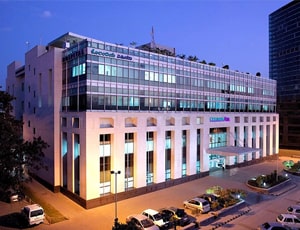
Types of Colorectal Cancer ( Colon Cancer ) Treatment in Manipal Hospital, Yeshwantpur and its associated cost
| Treatment Option | Approximate Cost Range (USD) | Approximate Cost Range (INR) |
|---|---|---|
| Colorectal Cancer Treatment (Overall) | 8870 - 17208 | 722444 - 1399354 |
| Surgery | 5005 - 8807 | 421283 - 745530 |
| Chemotherapy | 917 - 2244 | 73023 - 184532 |
| Radiation Therapy | 1112 - 2766 | 90746 - 227026 |
| Targeted Therapy | 1673 - 3320 | 137868 - 275964 |
| Immunotherapy | 2264 - 4445 | 181826 - 373621 |
| Hormone Therapy | 1125 - 2764 | 93613 - 227853 |
| Colostomy | 1722 - 3950 | 138470 - 322709 |
| Ileostomy | 2278 - 4516 | 185141 - 371576 |
| Proctectomy | 2864 - 5547 | 235712 - 464641 |
| Lymph Node Removal | 910 - 2248 | 75314 - 184672 |
| Laparoscopic Surgery | 2268 - 5128 | 184307 - 410645 |
| Robotic Surgery | 2862 - 6240 | 232175 - 498319 |
| Minimally Invasive Surgery | 2848 - 6178 | 227231 - 499996 |
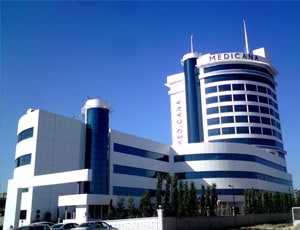
Types of Colorectal Cancer ( Colon Cancer ) Treatment in Medicana Konya Hospital and its associated cost
| Treatment Option | Approximate Cost Range (USD) | Approximate Cost Range (TRY) |
|---|---|---|
| Colorectal Cancer Treatment (Overall) | 3445 - 13237 | 103661 - 412310 |
| Surgery | 2868 - 7990 | 83388 - 240756 |
| Chemotherapy | 891 - 2790 | 27037 - 85655 |
| Radiation Therapy | 1102 - 3366 | 34273 - 101124 |
| Targeted Therapy | 1720 - 3922 | 51211 - 116941 |
| Immunotherapy | 2221 - 4496 | 68446 - 135947 |
| Hormone Therapy | 1141 - 3347 | 33816 - 100405 |
| Colostomy | 1652 - 4461 | 50665 - 137385 |
| Ileostomy | 2227 - 5138 | 67118 - 150920 |
| Proctectomy | 2767 - 6803 | 84007 - 201456 |
| Lymph Node Removal | 893 - 2836 | 27060 - 85249 |
| Laparoscopic Surgery | 2871 - 6677 | 84615 - 207023 |
| Robotic Surgery | 3339 - 8047 | 102170 - 239167 |
| Minimally Invasive Surgery | 2770 - 6836 | 84466 - 199921 |
DOCTORS IN 9 SPECIALITIES
FACILITIES & AMENITIES
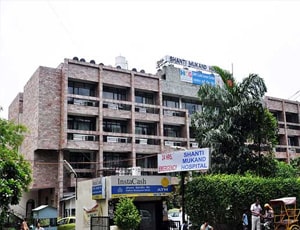
Types of Colorectal Cancer ( Colon Cancer ) Treatment in Shanti Mukand Hospital and its associated cost
| Treatment Option | Approximate Cost Range (USD) | Approximate Cost Range (INR) |
|---|---|---|
| Colorectal Cancer Treatment (Overall) | 8081 - 15232 | 667076 - 1252367 |
| Surgery | 4585 - 8128 | 375861 - 666883 |
| Chemotherapy | 814 - 2024 | 66782 - 166352 |
| Radiation Therapy | 1013 - 2536 | 83266 - 208504 |
| Targeted Therapy | 1520 - 3058 | 124315 - 248726 |
| Immunotherapy | 2034 - 4080 | 165731 - 332223 |
| Hormone Therapy | 1013 - 2534 | 83187 - 207880 |
| Colostomy | 1518 - 3548 | 124936 - 290327 |
| Ileostomy | 2027 - 4060 | 167186 - 332787 |
| Proctectomy | 2548 - 5055 | 207622 - 415628 |
| Lymph Node Removal | 812 - 2021 | 66649 - 165783 |
| Laparoscopic Surgery | 2030 - 4555 | 166750 - 374220 |
| Robotic Surgery | 2532 - 5600 | 208472 - 455717 |
| Minimally Invasive Surgery | 2548 - 5597 | 208584 - 458488 |
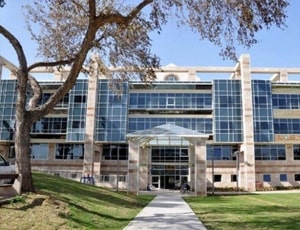
Kaplan Medical Centre located in Rehovot, Israel is accredited by JCI. Also listed below are some of the most prominent infrastructural details:
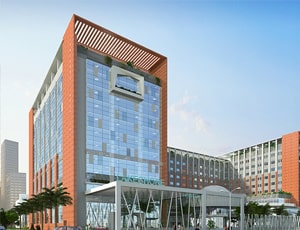
Types of Colorectal Cancer ( Colon Cancer ) Treatment in VPS Lakeshore Hospital and its associated cost
| Treatment Option | Approximate Cost Range (USD) | Approximate Cost Range (INR) |
|---|---|---|
| Colorectal Cancer Treatment (Overall) | 8128 - 15266 | 664022 - 1250154 |
| Surgery | 4557 - 8153 | 374426 - 662786 |
| Chemotherapy | 815 - 2028 | 66610 - 166789 |
| Radiation Therapy | 1011 - 2538 | 82927 - 207082 |
| Targeted Therapy | 1521 - 3030 | 125276 - 248780 |
| Immunotherapy | 2030 - 4068 | 167055 - 332220 |
| Hormone Therapy | 1020 - 2527 | 83472 - 208685 |
| Colostomy | 1516 - 3536 | 124601 - 291781 |
| Ileostomy | 2022 - 4041 | 166162 - 331549 |
| Proctectomy | 2540 - 5098 | 207499 - 418079 |
| Lymph Node Removal | 813 - 2033 | 66358 - 166922 |
| Laparoscopic Surgery | 2037 - 4588 | 166784 - 375313 |
| Robotic Surgery | 2539 - 5598 | 208688 - 456445 |
| Minimally Invasive Surgery | 2531 - 5597 | 209061 - 459152 |
Colon Cancer is the abnormal growth of the cells in the inner lining of the colon part of the large intestine also known as bowel cancer, colon cancer, or rectal cancer. This abnormal growth is called a polyp.
Colorectal cancer can affect men and women equally. However, studies have proven that men might develop it at a younger age.
There is no definite cause of colorectal cancer, but old age and certain lifestyle factors can increase colorectal cancer risk. Some of these colorectal cancer risk factors include the following:
A majority of colorectal cancers are adenocarcinoma. If you have been diagnosed with colorectal cancer, there are 95 percent chance that it is an adenocarcinoma. But there are some other types of colorectal cancer such as:
The doctor selects the most appropriate course of treatment for the patient after assessing the stage. Every patient has a customized treatment plan that is designed to best address their unique needs. The following options could be part of the treatment strategy.
Different types of surgery options can be used as per the identified stage of colorectal cancer. Surgery can be divided into two major segments: Early-stage colorectal cancer surgery and advanced-stage colorectal cancer surgery.
Early-stage colorectal cancer surgery: This is a minimally invasive form of surgery, which is typically recommended when the cancer is small and has not spread to other parts of the body. Early stage colorectal cancer surgery includes the following procedures:
This is a more invasive surgical option, recommended when cancer has grown into or through your colon. It can be of the following types:
In chemotherapy treatment, an anti-cancer drug is used to destroy the cancerous cells. It is commonly used before surgery, in an attempt to shrink a tumor before its surgical removal. It can also be given to relieve symptoms of colon cancer, in case it has spread to other parts of the body.
A certain number of chemotherapy cycles are also repeated after the surgery to kill the remaining cancer cells. This helps minimize the chances of cancer recurrence.
In this treatment, radiation beams such as X-ray or proton beams are used to kill cancer cells. It also prevents cancer cells from multiplying any further. This treatment is more commonly used for rectal cancer treatment before surgery to shrink the tumor. It can also be used after the surgery. Radiation therapy is the best treatment if cancer has penetrated through the wall of the rectum or traveled to nearby lymph nodes.
Targeted drug therapy is typically used for people with advanced colon cancer. It can be given alone or in combination with chemotherapy. Specific drugs help cancer cells commit suicide and strengthen the immune system. However, this treatment comes with limited benefits and risk of side effects.
Patients undergoing the surgery are required to stay in the hospital for at least two to three days after the surgery. You may expect yourself to be discharged from the hospital after regaining bowel function and the ability to eat without the support of an IV. Pain is controlled with the help of medications and it may take another two to three weeks at home before you can switch back to your normal routine.
If the Patient had surgery for the removal of bowel cancer, it may take a few weeks before you can return to work. In the case of laparoscopic surgery, you can return to work in about two weeks. In the case of open surgery, it may take around four to six weeks for you to return to work.
Patients must pay particular attention to eating the right food and avoid dehydration after bowel cancer surgery. Include high-protein foods in your diet and choose low-fiber foods if you have diarrhea. Additionally, eat limited amounts of green vegetables and only eat peeled fruits.
Patients who undergo chemotherapy before or after the surgery may experience a few side effects such as nausea, vomiting, fatigue, and pint pain. Make sure to drink plenty of fluids to minimize the side effects and recover quickly. Take emergency medications prescribed by the doctor, if needed.
Ask your healthcare adviser for the best multiple options and choose the one that meets your expectations
The average cost of Colorectal Cancer ( Colon Cancer ) Treatment in South Korea starts from USD 30000 There many KOIHA certified hospitals in South Korea that offer Colorectal Cancer ( Colon Cancer ) Treatment
Colorectal Cancer ( Colon Cancer ) Treatment package cost in South Korea has different inclusions and exclusions. The Colorectal Cancer ( Colon Cancer ) Treatment package cost usually includes all the expenses related to pre and post surgery expenses of the patient. The Colorectal Cancer ( Colon Cancer ) Treatment cost in South Korea includes the cost of anesthesia, medicines, hospitalization and the surgeon's fee. Post-surgical complications, new findings and delayed recovery may have an impact on the total Colorectal Cancer ( Colon Cancer ) Treatment cost in South Korea.
Colorectal Cancer ( Colon Cancer ) Treatment in South Korea is offered by multiple hospitals across the country. The top hospitals for Colorectal Cancer ( Colon Cancer ) Treatment in South Korea include the following:
While the speed of recovery may vary from patient to patient, they are still required to stay for about 30 days after discharge. This duration of stay is recommended to complete all the necessary follow-ups and control tests to ensure that the surgery was successful.
There are certain expenses additional to the Colorectal Cancer ( Colon Cancer ) Treatment cost that the patient may have to pay for. These are the chanrges for daily meals and hotel stay outside the hospital. The per day cost in this case may start from USD 50 per person.
Some of the best cities in South Korea which offer Colorectal Cancer ( Colon Cancer ) Treatment are:
After the Colorectal Cancer ( Colon Cancer ) Treatment takes place, the average duration of stay at the hospital is about 4 days. This phase is important to ensure that the patient is recovering well and is clinically stable. During this time, several tests are performed before the patient is deemed suitable for discharge.
There are more than 2 hospitals that offer Colorectal Cancer ( Colon Cancer ) Treatment in South Korea. The above mentioned hospitals have the required infrastructure and a dedicated unit where patients can be treated. These hospitals comply with all the rules and regulations as dictated by the regulatory bodies and medical association in South Korea
Some of the top doctors for Colorectal Cancer ( Colon Cancer ) Treatment in South Korea are: